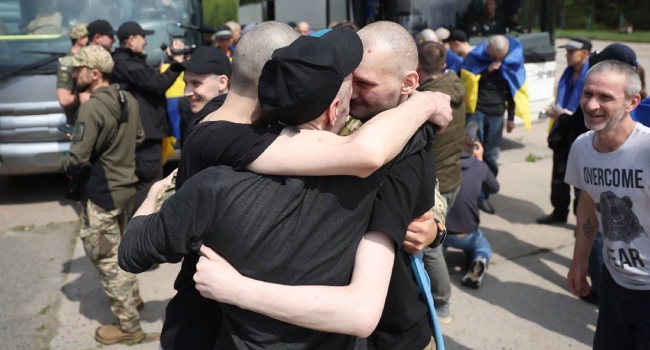Ukraine and Russia have carried out a fourth prisoner-of-war exchange within a week, both sides confirmed on Saturday.
The swap is part of a series of agreements brokered earlier this month in Istanbul aimed at facilitating humanitarian gestures amid ongoing hostilities.
President Volodymyr Zelensky announced the development on social media, saying, “We continue to take our people out of Russian captivity.”
Accompanying the post were images showing freed Ukrainian soldiers, draped in national flags, embracing loved ones and making emotional phone calls. Some bore visible injuries, and many appeared to be in military fatigues.
Russia’s Ministry of Defence also confirmed the exchange, stating that “another group of Russian servicemen was returned from the territory controlled by the Kyiv regime.”
A video posted by Moscow showed uniformed Russian POWs waving flags and chanting patriotic slogans such as “Russia, Russia,” and “glory to Russia.”
In addition to the prisoner exchange, Ukraine revealed that it had received 1,200 unidentified bodies from Russia, which Moscow claims are Ukrainian citizens, including soldiers. Kyiv did not disclose whether it returned any bodies to Russia as part of the agreement.
These reciprocal humanitarian gestures come amid escalating violence, particularly in Ukraine’s northeastern Sumy region. Russia has intensified its offensive there, seeking to create a “buffer zone” to shield its adjacent Kursk region, previously under partial Ukrainian control.
Despite Russia’s aggression, Zelensky asserted that Ukrainian forces have halted the enemy’s advance in Sumy and have successfully reclaimed one village. He further estimated that Moscow has deployed approximately 53,000 troops in the ongoing operation.
While calls for a ceasefire have been repeatedly dismissed by Moscow, the POW exchanges signal a rare instance of cooperation between the warring nations—though tensions on the battlefield remain dangerously high.





